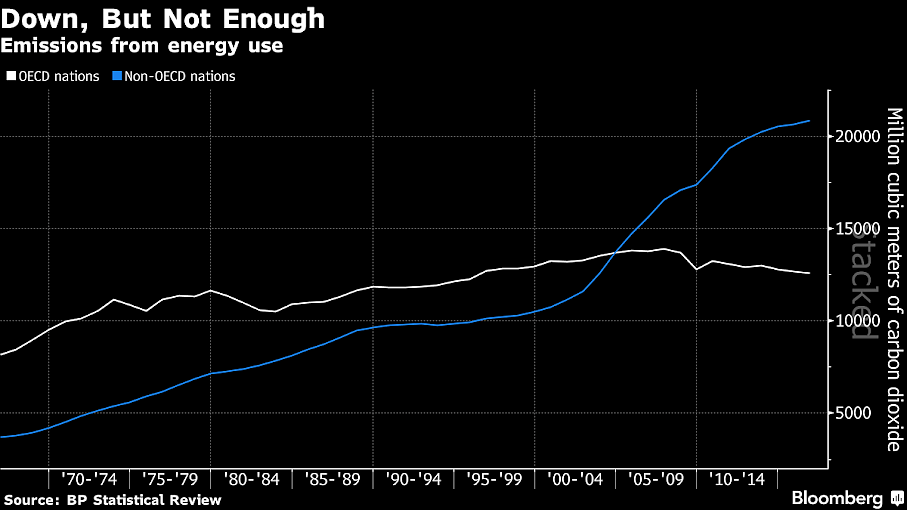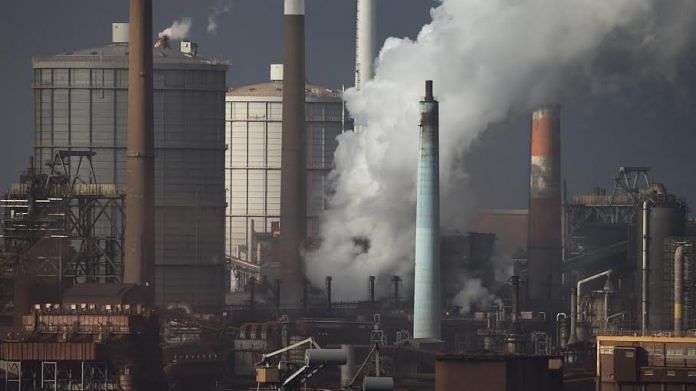Other emerging nations have also joined the chorus of criticism on rich countries’ lack of progress on emission cuts and funding to adapt to the increased frequency of storms, droughts and floods.
As negotiators haggle the details of the Paris climate agreement that starts next decade, India is frustrated that rich nations still haven’t fulfilled pledges made in a previous treaty.
“We are very disappointed,” Ravi Prasad, head of the climate change division of India’s Ministry of Environment, Forest and Climate Change, said in an interview. “In the pre-2020 period, we have not seen the kind of ambition that was expected” from developed countries, he said.
The United Nations-sponsored 2015 Paris accord to reduce global warming takes over from the Kyoto Protocol that ends in two years. Under Kyoto, some developed nations including the European Union’s 28 member states agreed to cut emissions by certain levels, though a binding deal still hasn’t been sealed. The U.S. didn’t join the Kyoto agreement and has vowed to leave the Paris deal.
Germany, which hosted climate talks earlier this month, will probably miss its 2020 emissions-reduction target. And while U.S. fossil fuel-fired power generation dropped last year for the first time since 2008, President Donald Trump is rolling back domestic measures designed to reduce greenhouse gas emissions.
In 2009, the U.S. pledged to cut emissions by 17 percent in the 2005-2020 period. As of 2016, its emissions had fallen 12 percent, according to the Environmental Protection Agency.

Critical Chorus
Other emerging nations have joined a chorus of criticism on rich countries’ lack of progress on emission cuts and funding to adapt to the increased frequency of storms, droughts and floods.
“What we’ve found over the past three years, since Paris, is that pre-2020 commitments are not being met, in terms of emission reductions and financial contributions,” Mandy Rambharos, a negotiator on carbon markets for South Africa, said in an interview.
Under an extension to Kyoto, known as the Doha amendment, 37 nations agreed to cut greenhouse gases by 5 to 40 percent by 2020 versus 1990 levels. It’s ratified by 112 countries, short of the 144 required, according to the United Nations climate unit.
It doesn’t bode well for a speedy agreement on the Paris accord. Climate negotiators achieved less than expected when they met in Bonn earlier this month to set the Paris deal’s rule book. Envoys are now gearing up for an extra set of negotiations in Bangkok before ministers and heads of state meet in Poland at the end of the year.
“We don’t see a lot of constructive involvement” from the U.S. in the negotiations, Prasad said. “They have a responsibility and we are concerned about them not being part of the Paris agreement in the coming years.” – Bloomberg.



